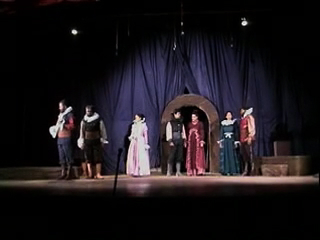 Opening sequence: A self absorbed Lear (r)
Opening sequence: A self absorbed Lear (r)
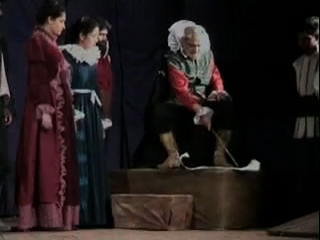 Lear to his daughters (00:00:31)
Lear to his daughters (00:00:31)
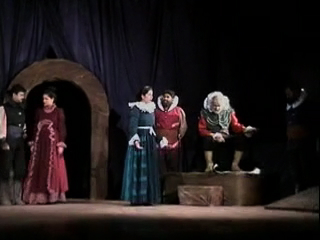 Flattering Goneril (00:00:50)
Flattering Goneril (00:00:50)
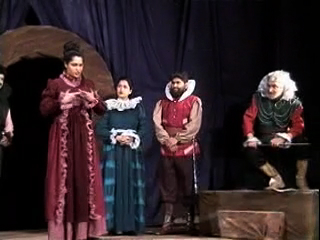 Cunning Regan (00:00:22)
Cunning Regan (00:00:22)
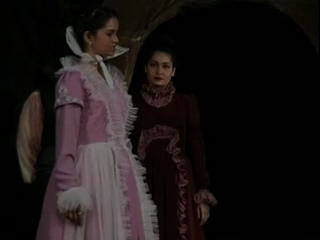 Cordelia’s dilemma (00:00:10)
Cordelia’s dilemma (00:00:10)
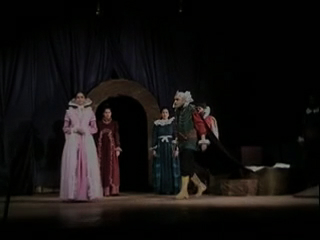 Lear perplexed (00:00:10)
Lear perplexed (00:00:10)
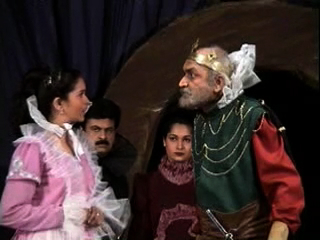 Cordelia’s plain speaking (00:00:46)
Cordelia’s plain speaking (00:00:46)
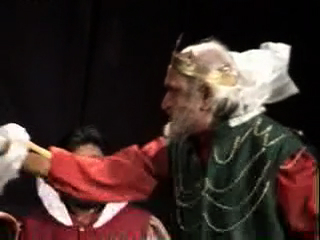 Lear’s fury (00:00:08)
Lear’s fury (00:00:08)
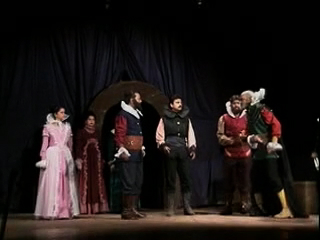 Ready to strike Kent (00:00:05)
Ready to strike Kent (00:00:05)
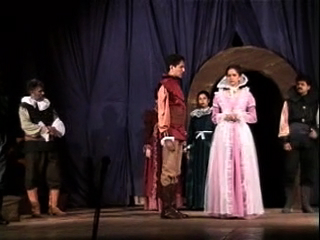 France’s proposal to Cordelia (00:00:39)
France’s proposal to Cordelia (00:00:39)
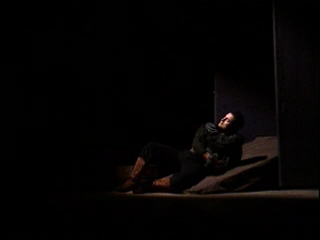 Edmund’s soliloquy (00:00:53)
Edmund’s soliloquy (00:00:53)
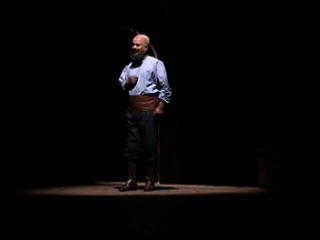 Kent in disguise (00:00:11)
Kent in disguise (00:00:11)
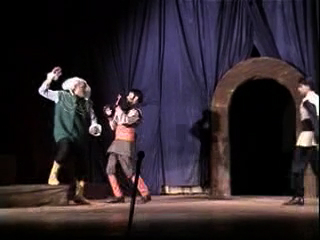 Lear takes umbrage at Oswald (00:00:08)
Lear takes umbrage at Oswald (00:00:08)
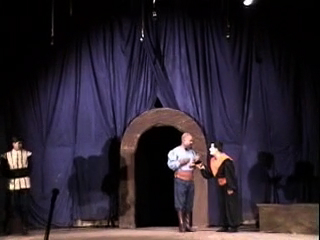 The witty Fool (00:00:42)
The witty Fool (00:00:42)
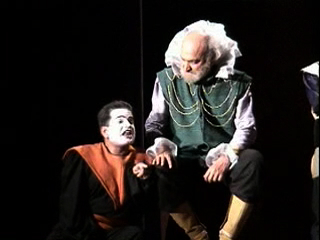 The wise and bitter Fool (00:00:30)
The wise and bitter Fool (00:00:30)
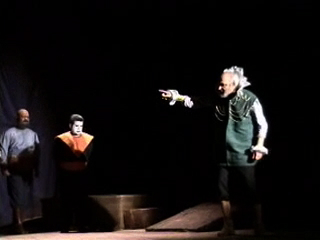 Lear’s curse (00:00:33)
Lear’s curse (00:00:33)
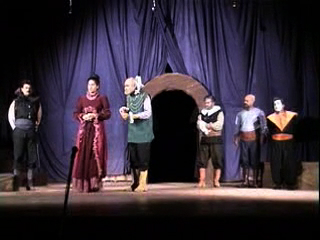 Artful Regan (00:00:32)
Artful Regan (00:00:32)
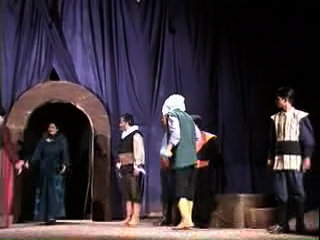 The sisters’s solidarity (00:00:18)
The sisters’s solidarity (00:00:18)
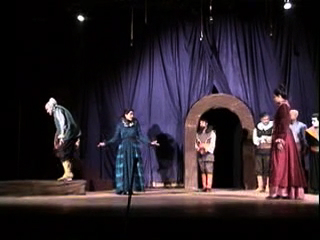 Regan pushes her luck (00:00:10)
Regan pushes her luck (00:00:10)
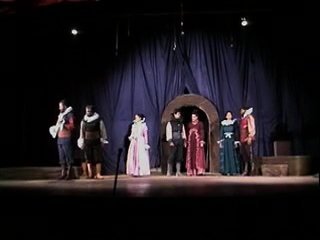 Ultimate betrayal (00:01:13)
Ultimate betrayal (00:01:13)
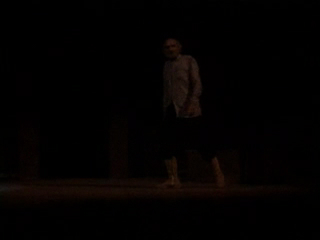 Lear’s storm of rage (00:01:13)
Lear’s storm of rage (00:01:13)
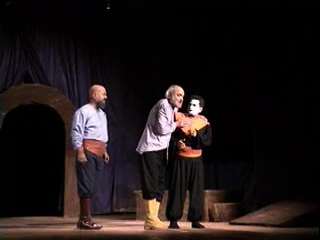 Remembers the Fool (00:00:41)
Remembers the Fool (00:00:41)
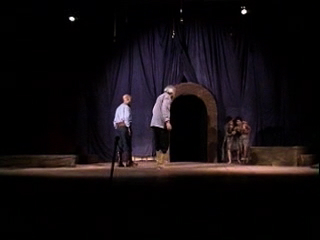 Lear’s self-realization (00:00:45)
Lear’s self-realization (00:00:45)
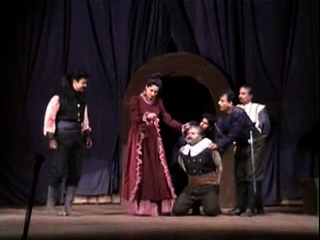 Regan plucks Gloucester’s beard (00:00:14)
Regan plucks Gloucester’s beard (00:00:14)
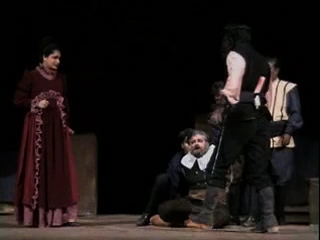 Blinding of Gloucester (00:00:07)
Blinding of Gloucester (00:00:07)
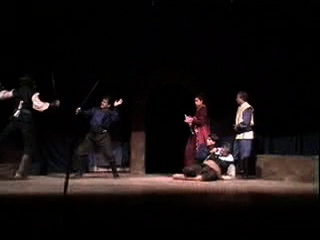 Monstrous Regan (00:00:15)
Monstrous Regan (00:00:15)
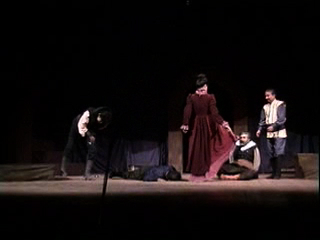 Gloucester in darkness (00:00:09)
Gloucester in darkness (00:00:09)
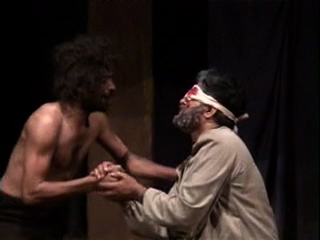 Gloucester begs Poor Tom to take him to Dover (00:00:45)
Gloucester begs Poor Tom to take him to Dover (00:00:45)
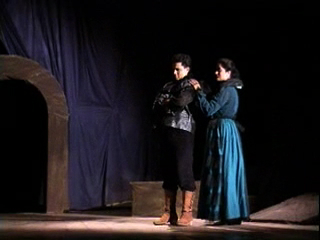 Goneril is attracted to Edmund (00:01:10)
Goneril is attracted to Edmund (00:01:10)
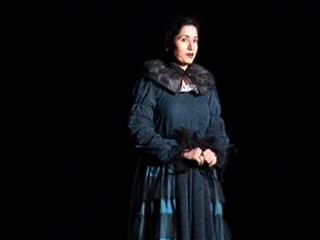 Goneril’s increasing power lust (00:00:27)
Goneril’s increasing power lust (00:00:27)
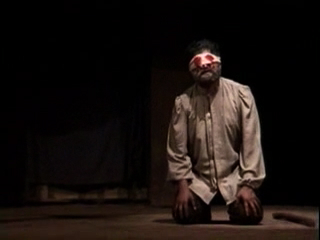 Gloucester’s suicide (00:00:22)
Gloucester’s suicide (00:00:22)
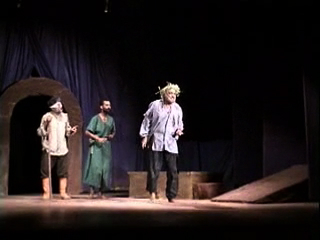 Mad Lear (00:00:33)
Mad Lear (00:00:33)
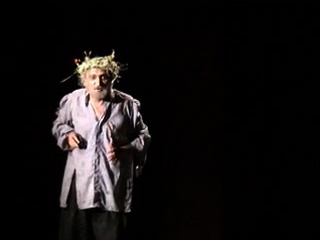 Both clarity and passion in madness (00:01:05)
Both clarity and passion in madness (00:01:05)
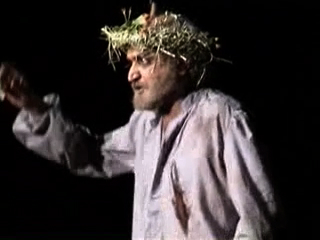 Reason in madness (00:01:20)
Reason in madness (00:01:20)
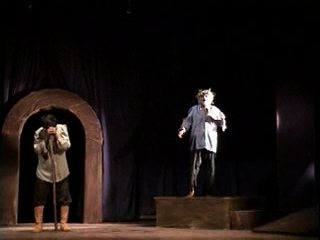 Self-realization through madness (00:00:41)
Self-realization through madness (00:00:41)
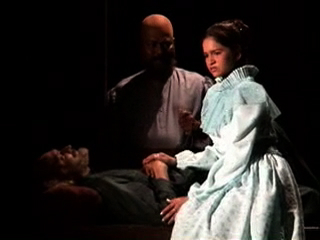 Cordelia “redeems nature” (00:01:28)
Cordelia “redeems nature” (00:01:28)
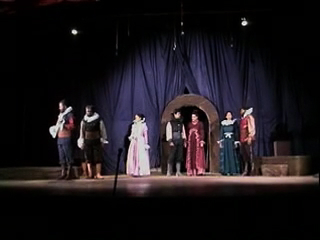 Lear is reborn (00:00:31)
Lear is reborn (00:00:31)
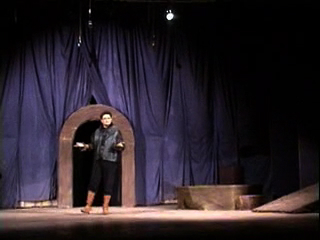 Edmund the Machiavel (00:00:25)
Edmund the Machiavel (00:00:25)
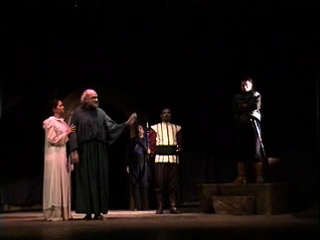 Lear welcomes his fate (imprisonment) (00:02:15)
Lear welcomes his fate (imprisonment) (00:02:15)
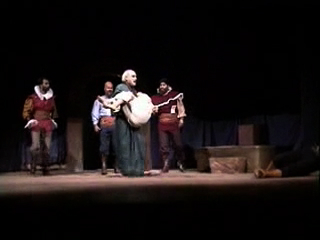 Lear with Cordelia in his arms (00:01:09)
Lear with Cordelia in his arms (00:01:09)
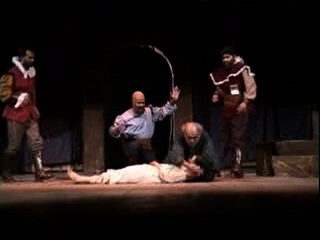 Lear imagines Cordelia speaks (00:00:41)
Lear imagines Cordelia speaks (00:00:41)
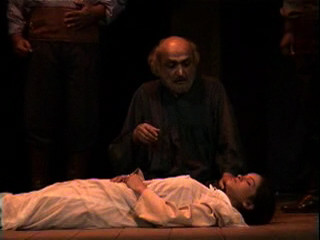 Lear’s final soliloquy (00:00:47)
Lear’s final soliloquy (00:00:47)
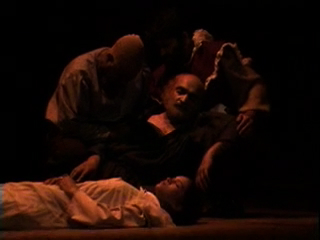 Edgar’s epitaph (00:00:35)
Edgar’s epitaph (00:00:35)
About This Clip
Raja Lear
Raja Lear, a 1993 Marathi-language adaptation of King Lear. Directed by Sharad Bhuthiadia from a translation by Vinda Karandikar.
A faithful translation, this production was performed in a manner ‘faithful’ to the tradition of realist staging of Shakespeare. This has been the most common staging practice for Shakespeare in India. Based on universalist assumptions of a stable and authoritative text, it performs Shakespeare straight letting the text speak for itself. It seeks to let the past live in the present, playing up its foreignness. Though sometimes critiqued as “derivative” and “essentialising,” this universalist staging practice, particularly in our colonial and postcolonial context, functions as an empowering mimicry. “Doing it like them” becomes a mastering of the master colonising text.
Further, the group, Pratyaya, coming from a provincial town like Kolhapur, is able to eschew the market rules of Bombay theatre: “Ours is a focused outlook on theatre,” says Sharad Bhuthadia, asserting that they choose to do meaningful theatre which can “go beyond and handle genuine human problems by going deep into the understanding of man’s life” (quoted in a review, Independent Journal of Politics and Business, 20 August 1993). Bhuthadia’s Raja Lear thus did not need any further entry points into the play, and while it performed an edited version, in three acts, it nevertheless, did full justice to the main themes of the play.
Its singular achievement was a deeply felt and internalized performance, not always easy for Shakespeare in translation; it received universal praise: “A high-powered fidelity to a Shakespearean text…. Never before had Marathi sounded so good on stage. Raja Lear was not just believable, it was real,” said R Ramanathan in the Independent Journal, while the Indian Express (20 August 1993) titled it a “Class Act.”
So successful was the universalizing of this production that critics had no difficulty in contemporising the play: “Lear becomes the tragedy of the India we are living in – the tragedy of a great nation being torn apart by centrifugal forces: of a political class composed of an imbecile king surrounded by sycophants (Regan and Goneril) and ruthless manipulators (Edmund); of the voices of sanity being disowned (Cordelia) and banished (Kent) or simply disappearing (Fool); of goodness having to pretend insanity (Edgar). Lear, then, does not remain the tragedy of one man. It becomes the tragedy of an entire people, an epoch.” (Sudhanva Deshpande, The Times of India, January 1993).
by Poonam Trivedi
Read more about the “universalized Shakespeare” performance style.
Video of performance took place on 26 Feb. 2001 at the Nataka Bharathi 2001 Shakespeare on Indian Stage, national theatre festival and seminar at Kasargode, Kerala, India, 24 Feb – 2 March 2001, in association with the Kerala Sangeetha Nataka Akademi. The role of Lear is played by Sharad Bhuthadia.
Raja Lear Clips and Images in this Collection
Act 1
- Opening sequence: A self absorbed Lear
- Lear to his daughters
- Flattering Goneril
- Cunning Regan
- Cordelia’s dilemma
- Lear perplexed
- Cordelia’s plain speaking
- Lear’s fury
- Giving away the crown (still)
- Ready to strike Kent
- Kent’s banishment (still)
- France’s proposal to Cordelia
- Cordelia’s leave taking (still)
- Edmund’s soliloquy
- Edmund resolves to act (still)
- Edmund and Edgar: villainy initiated (still)
- Goneril’s complaint (still)
- Kent in disguise
- Lear takes umbrage at Oswald
- The witty Fool
- The wise and bitter Fool
- Goneril confronts Lear (still)
- Lear’s curse
Act 2
- Gloucester pursuing Edgar (still)
- Artful Regan
- The sisters’s solidarity
- Regan pushes her luck
- Ultimate betrayal
Act 3
- Lear’s storm of rage
- Rage turns to self-pity (still)
- Remembers the Fool
- Edgar as Poor Tom (still)
- Lear’s self-realization
- Lear’s stormy education (still)
- Philosopher’ Tom (still)
- Regan plucks Gloucester’s beard
- Blinding of Gloucester
- Monstrous Regan
- Gloucester in darkness
Act 4
- Gloucester begs Poor Tom to take him to Dover
- Goneril is attracted to Edmund
- Goneril mocks Albany (still)
- Goneril’s increasing power lust
- Gloucester’s suicide
- Mad Lear
- Both clarity and passion in madness
- Reason in madness
- Self-realization through madness
- Cordelia “redeems nature”
- Lear is reborn
- Wisdom dawns (still)
- Final humility (still)
Act 5
- Edmund the Machiavel
- Lear welcomes his fate (imprisonment)
- Regan and Goneril squabble over Edmund (still)
- Edgar’s moral vengeance (still)
- Lear with Cordelia in his arms
- Lear imagines Cordelia speaks
- Lear’s final soliloquy
- Edgar’s epitaph
Raja Lear
Clips
Edgar’s epitaph
Edg: The weight of this sad time we must obey, Speak what we feel, not what we ought to say. The oldest have borne most; we that are young Shall...more
Edg: The weight of this sad time we must obey,
Speak what we feel, not what we ought to say.
The oldest have borne most; we that are young
Shall never see so much, nor live so long.
[Exeunt, with a dead march]. (V.iii.323 – 326)
The contrasted lighting gave the end the effect of a tableau, signaling an iconic emblematisation of a pieta-like suffering (but with the genders reversed). The last lines given by Edgar, not Albany, spoken out to the audience formed an epitaph, a tribute to the story “the oldest hath borne most” … The production remained consistent in its use of a universalized western mise en scene throughout. less
Cunning Regan
Reg: I am made of the self same metal as my sister, And prize me at her worth. In my true heart I find she names my very deed of...more
Reg: I am made of the self same metal as my sister,
And prize me at her worth. In my true heart
I find she names my very deed of love;
Only she comes too short; that I profess
Myself an enemy to all other joys
Which the most precious square of sense possesses,
And find I am alone felicitate
In your dear highness’ love. (1.i.69 – 76)
Lear: To thee and thine, hereditary ever,
Remain this ample third of our fair kingdom. (1.i.79 – 80)
Regan is more artful, makes larger hand gestures, bows, and is more than pleased with her reward, barely able to conceal her excitement in turning towards Cornwall. less
Cordelia’s dilemma
Cor: Nothing, my lord. (1.i.87) Cordelia, who had been standing at home distance, is positioned as different from the other two. Her “nothing” emerges out of an inner perplexity ,...more
Cor: Nothing, my lord. (1.i.87)
Cordelia, who had been standing at home distance, is positioned as different from the other two. Her “nothing” emerges out of an inner perplexity , a division between her duty to her own truth and that to her father. This Cordelia was the sweet, shy, sensible daughter, devoted to the father but unable to dissimulate like her sisters. There is a long stunned pause before her second “nothing.” less
Flattering Goneril
Gon: Sir, I love you more than word can wield the matter; Dearer than eyesight, space and liberty; Beyond what can be valued rich or rare; No less than life,...more
Gon: Sir, I love you more than word can wield the matter;
Dearer than eyesight, space and liberty;
Beyond what can be valued rich or rare;
No less than life, with grace health, beauty, honour;
As much as child e’er lov’d, or father found;
A love that makes breath poor and speech unable;
Beyond all manner of so much I love you. (1.i.54 – 61)
Goneril obliges, observes form, and bows. She is pleased with her gift as reward, and exchanges glances with Albany. less
Lear to his daughters
Lear: Give me the map there. Know that we have divided In three our kingdom; and ’tis out fast intent To shake all cares and business from our age Conferring...more
Lear: Give me the map there. Know that we have divided
In three our kingdom; and ’tis out fast intent
To shake all cares and business from our age
Conferring them on younger strenghts; while we
Unburden’d crawl toward death. Our son of Cornwall,
And you, our no less loving son of Albany,
We have this hour a constant will to publish
Our daughters’ several dowers, that future strife
May be prevented now. (1.i.37 – 44)
The division of the kingdom begins as genial gift giving with the patriarch expecting some ritual flattery in return. less
Opening sequence: A self absorbed Lear
Sennet. Enter King Lear, Cornwall, Albany, Goneril, Regan, Cordelia and Attendants. (1.i.) The play opened with Gloucester and Kent in conversation followed by the entry of the daughters with their...more
Sennet. Enter King Lear, Cornwall, Albany,
Goneril, Regan, Cordelia and Attendants. (1.i.)
The play opened with Gloucester and Kent in conversation followed by the entry of the daughters with their consorts and then Lear with his fool. What is noticeable is the immediate establishment of the Western ambience with quasi-Elizabethan costumes and Western music. Lear’s entry, though heralded by a fanfare, is of the self-absorbed monarch, who enters laughing form the side wing, not from the central ‘official’ door down stage from where the rest of the court enters. He has his arm around his Fool and is deep in conversation. He then strides up to his chair on the podium, releasing the Fool with a fond pat, but barely acknowledging those waiting for him. Bhuthadia’s staging saw this play as an individual tragedy, of an egocentric patriarch whose daughters fail to manage him. A comparison with the opening scenes of Samrat Lear 1 and Iruthiattam 4 will show the differences in the interpretation of the character and fare of Lear.
This universalizing stream of Shakespeare performance does not need spectacular stage effects. Its bare stage with minimal props could be any place and every place. The mood of the performance was thoughtful, with muted colors that blended well. less
Ready to strike Kent
Lear: O, vassal! Miscreant! (1.i.161) Challenged again, the monstrous ego of the monarch is ready to strike at Kent.more
Lear: O, vassal! Miscreant! (1.i.161)
Challenged again, the monstrous ego of the monarch is ready to strike at Kent. less
France’s proposal to Cordelia
France: Fairest Cordelia, that art most rich being poor; Most choice, forsaken; and move lov’d, despis’d! Thee and thy virtues here I seize upon; Be it lawful I take up...more
France: Fairest Cordelia, that art most rich being poor;
Most choice, forsaken; and move lov’d, despis’d!
Thee and thy virtues here I seize upon;
Be it lawful I take up what’s cast away.
Gods, gods! ’tis strange that from their cold’st neglect
My love should kindle to inflam’d respect. (1.i.250 – 255)
France takes up “what’s cast away” proposing in the classic western style by going down on his knees. For an indigenised version see Samrat Lear 9. less
Cordelia’s plain speaking
Cor: Good my lord, You have begot me, bred me, lov’d me; I Return those duties back as are right fit, Obey you, love you and most honour you. Why...more
Cor: Good my lord,
You have begot me, bred me, lov’d me; I
Return those duties back as are right fit,
Obey you, love you and most honour you.
Why have my sister’s husbands, if they say
They love you all? Happily, when I shall web
That lord whose hand must take my plight shall carry
Half my love with him, half my care and duty;
Sure I shall never marry like my sisters
To love my father all. (1.i.95 – 104)
Cordelia’s statement of her views, spoken out to the audience. Notice her poise and confidence and also her frown at her reference to her sisters’ professions of love. Contrast the more emotional Cordelia in Samrat Lear and the more controlled and determined one in Iruthiattam. less
Lear takes umbrage at Oswald
Lear: Do you bandy looks with me, you rascal? [Striking him.] Osw: I’ll not be stricken, my Lord. Kent: Nor tripp’d neither, you base foot-ball player. [Tripping up his heels.]...more
Lear: Do you bandy looks with me, you rascal? [Striking him.]
Osw: I’ll not be stricken, my Lord.
Kent: Nor tripp’d neither, you base foot-ball player.
[Tripping up his heels.]
Taking umbrage at his “faint neglect,” Lear ready to strike Oswald. Kent too adds his bit. less
Edmund’s soliloquy
Edm: Thou Nature, art my goddess; to thy law My services are bound. Wherefore should I Stand in the plague of custom, and permit The curiosity of nations deprive me,...more
Edm: Thou Nature, art my goddess; to thy law
My services are bound. Wherefore should I
Stand in the plague of custom, and permit
The curiosity of nations deprive me,
For that I am some twelve or fourteen moonshines
Lag of a brother? Why bastard? Wherefore base? (1.ii.1 – 6)
The Subplot: Edmund discovered lying down, contemplating his fate; an angst-ridden villain who is aroused to question his fate, “Why bastard?” less
Kent in disguise
Kent: Now, banish’d Kent, If thou canst serve where thou dost stand condemn’d, So may it come, thy master, whom thou lov’st, Shall find thee full of labours. (1.iv.4 –...more
Kent: Now, banish’d Kent,
If thou canst serve where thou dost stand condemn’d,
So may it come, thy master, whom thou lov’st,
Shall find thee full of labours. (1.iv.4 – 7)
Kent in disguise, asserting his loyalty in a moment of spotlit introspection: “If thou canst server where thou dost stand condemn’d less
The sisters’s solidarity
Lear: O Regan! Will you take her by the hand? Gon: Why not by th’hand, sir? How have I offended All’s not offence that indiscretion finds And dotage terms so....more
Lear: O Regan! Will you take her by the hand?
Gon: Why not by th’hand, sir? How have I offended
All’s not offence that indiscretion finds
And dotage terms so. (II.iv.196 – 199)
The two sisters togethe embolden themselves to form a joint front against their father. less
The wise and bitter Fool
Fool: I have used it, Nuncle, e’er since thou mad’st thy daughters thy mothers; for whenz thou gave’st them the rod and putt’st down thine own breeches, Then they for...more
Fool: I have used it, Nuncle, e’er since thou
mad’st thy daughters thy mothers; for whenz
thou gave’st them the rod and putt’st down
thine own breeches, Then they for sudden
joy did weep, And I for sorrow sung, That
such a king should play bo-peep, And go
the fools among. (1.iv.179 – 185)
The Fool’s song becomes a bitter pill chastising the King for his folly. Lear looks more serious now. less
Lear’s curse
Lear: Hear, nature, hear! Dear Goddess, hear! Suspend they purpose, if thou didst intend To make this creature fruitful! Intro her womb convey sterility! Dry up in her the organs...more
Lear: Hear, nature, hear! Dear Goddess, hear!
Suspend they purpose, if thou didst intend
To make this creature fruitful!
Intro her womb convey sterility!
Dry up in her the organs of increase,
And from derogate body never spring
A babe to honour her! (1.iv.284 – 290)
The first sign of the unhinging of Lear’s mind by the extremity of his passion send in the curse of barrenness he wishes upon his own daughter, Goneril. The back lit figure of Lear, with other characters in darkness, emphasizes his isolation and shows the vehemence and the curse arising out of personal rejection and hurt. In Samrat Lear, the curse is irrational and avenging. less
The witty Fool
Fool: there, take my coxcomb. Why, this fellow has banish’d two on’s daughters, and did the third a blessing against his will: if thou follow him thou must needs wear...more
Fool: there, take my coxcomb. Why, this
fellow has banish’d two on’s
daughters, and did the third a blessing
against his will: if thou follow him thou
must needs wear my coxcomb. How
now, Nuncle! Would I had two
coxcombs and two daughters!
Lear: Why, my boy?
Fool: If I gave them all my living, I’d
keep my coxcombs myself. There’s
mine; beg another of thy daughters.
Lear: Take heed, sirrah; the whip. (1.iv.106 – 116)
The Fool was played as an archetypal courtly fool, but with the face painted as a white mask. He emerged in this production as both critic and sympathizer. Here the witty fool would gift his coxcomb, the symbol of the jester, to Kent and Lear who have already given away their wits. Note Lear’s initial indulgence towards him when he somewhat playfully reminds him of the whip. The word “boy” used by Lear for the Fool was translated as beta = son emphasizing the patriarch’s fondness for him. less
Remembers the Fool
Lear: My wits begin to turn. Come on, my boy. How dost, my boy? Art cold? I am cold myself. Where is this straw, my fellow? The art of our...more
Lear: My wits begin to turn.
Come on, my boy. How dost, my boy? Art cold?
I am cold myself. Where is this straw, my fellow?
The art of our necessities is strange,
And can make vile things precious. Come your hovel.
Poor Fool and knave, I have one part in my heart
That’s sorry yet for thee.
Fool: He that has and a little tiny wit,
With a hey, ho, the wind and the rain,
Must make a content with his fortunes fit,
Though the rain it raineth every day, (III.ii.67 – 77)
The buffeting by the storm clarifies and makes him see beyond himself and remember his Fool. This is juxtaposed with the Fool’s ironic message that one must make do with what one has, as Lear will now have to do. less
Regan pushes her luck
Reg: What need one? (II.iv.265) Regan pushes her luck, moving from “What should you need of more?”more
Reg: What need one? (II.iv.265)
Regan pushes her luck, moving from “What should you need of more?” less
Ultimate betrayal
Lear: No, you unnatural hags, I will have such revenges on you both That all the world shall — I will do such things, What they are, yet I know...more
Lear: No, you unnatural hags,
I will have such revenges on you both
That all the world shall — I will do such things,
What they are, yet I know not, but they shall be
The terrors of the earth. You think I’ll weep;
No, I’ll not weep:
I have full cause of weeping, [Storm heard at a distance] but this heart
Shall break into a hundred though flaws
Or ere I’ll weep. O Fool! I shall go mad. (II.iv.280 – 290)
The ultimate betrayal: Lear tries to reason with himself but ends cursing his unkind daughters and on the edge of madness. less
Artful Regan
Reg: O, Sir! You are old; Nature in you stands on the very verge Of her confine: you should be ruled and led By some discretion that discards your state...more
Reg: O, Sir! You are old;
Nature in you stands on the very verge
Of her confine: you should be ruled and led
By some discretion that discards your state
Better than you yourself. Therefore I pray you
That to our sister you do make return; (II.iv.147 – 153)
Regan firmly, and with seeming reasonableness makes it clear that she will none of her father’s whims now. less
Gloucester begs Poor Tom to take him to Dover
Edgar: Bless thy sweet eyes, they bleed? Gloucester: Know’st thou the way to Dover? Edgar: Both stile and gate, horse-way and foot-path. Poor Tom hat been scar’d out of his...more
Edgar: Bless thy sweet eyes, they bleed?
Gloucester: Know’st thou the way to Dover?
Edgar: Both stile and gate, horse-way and
foot-path. Poor Tom hat been scar’d out of
his good wits: bless thee, good man’s son,
from the foul fiend! Five fiends have been in
Poor Tim at once; … So, bless thee master!
Glos: Here, take this purse, thou who the heav’ns’ plagues
Have humbled to all strokes: that I am wretched
Makes thee the happier: Heavens, deal so still! (IV.i.53 – 66)
The cruelty and pathos intensifies: blind Gloucester stumbles upon his runaway son Edgar. Like Lear blinded with anger, he too achieves insight being literally blinded. “Blessed thy sweet eyes, they bleed.” less
Monstrous Regan
Regan: Give me thy sword. A peasant stand up thus! [Takes a sword and runs at him behind] (III.vii.79) The production emphasized women’s lust for power and consequent emboldenment. Regan...more
Regan: Give me thy sword. A peasant stand up thus!
[Takes a sword and runs at him behind] (III.vii.79)
The production emphasized women’s lust for power and consequent emboldenment. Regan stabs the guard who revolts not once by twice, and then in departure from the text, herself injures Gloucester’s second eye. less
Blinding of Gloucester
Cornwall: See ‘t shalt thou never. Fellows hold the chair. Upon these eyes of thing I’ll set my foot. (III.vii.66 – 67) The blinding, realistic but not sensational. Cornwall’s back...more
Cornwall: See ‘t shalt thou never. Fellows hold the chair.
Upon these eyes of thing I’ll set my foot. (III.vii.66 – 67)
The blinding, realistic but not sensational. Cornwall’s back deflects the audience’s direct gaze. He uses his heels, not messing his hands, for this deed. less
Regan plucks Gloucester’s beard
[Regan plucks his beard]. Glou: By the kind Gods, ’tis most ignobly done To pluck me by the beard. Regan: So white, and such a traitor! (III.vii.35 – 37) The...more
Glou: By the kind Gods, ’tis most ignobly done
To pluck me by the beard.
Regan: So white, and such a traitor! (III.vii.35 – 37)
The blinding of Gloucester, in a realistic manner: Regan pulls at his beard in a rage but smiles to find some hair in her hand, and then flicks it off in disgust. It shows her growing sadism and arrogance. less
Lear’s self-realization
Lear: Poor nakes wretches, whereso’er you are, That bide the pelting of this pitiless storm, How shall your houseless heads and unfed sides, Your loop’d and window’d raggedness, defend you...more
Lear: Poor nakes wretches, whereso’er you are,
That bide the pelting of this pitiless storm,
How shall your houseless heads and unfed sides,
Your loop’d and window’d raggedness, defend you
From season such as these? O! I have ta’en
Too little care of this. Take physic, Pomp;
Expose thyself to feel what wretches feel,
That thou mayst shakes the superflux to them,
And show the Heavens more just. (III.iv.28 – 36)
Lear’s ‘stormy education’ continues with a concretization of his realization that he has been too self absorbed in his kingship: “Poor nakes wretches less
Both clarity and passion in madness
Lear: Let copulation thrive: for Gloucester’s bastard son Was kinder to his father than my daughters Got ‘tween the lawful sheets. To’t, Luxury, pell-mell! For I lack soldiers. Behold yond...more
Lear: Let copulation thrive: for Gloucester’s bastard son
Was kinder to his father than my daughters
Got ‘tween the lawful sheets. To’t, Luxury, pell-mell!
For I lack soldiers. Behold yond simp’ring dame,
Whose face between her forks presages snow;
That minces virtue, and does shake the head
To hear of pleasure’s name;
The fitchew now the soiled horse goes to’t
With a more riotous appetite.
Down from the waist they are all Centaurs,
Though women all above:
But to the girdle do the god’s inherit,
Beneath is all the fiend’s: there’s hell, there’s darkness,
There is the sulphurous pit-burning, scalding,
Stench, consumption; fie, fie, fie! pah, pah!
Give me an ounce of civet, good
apothecary, To sweeten my imagination. (IV.vi.117 – 133)
Yet there is reason in his madness; he hits out at his tormentors, the legitimately begot daughters: “Let copulation thrive less
Gloucester’s suicide
Glou: Now, fellow, fare thee well. Edgar: Gone, sir: farewell. [He throws himself forward and fall] (IV.vi.41) Gloucester’s suicide where the ludicrous flop is redeemed only by the pathos of...more
Glou: Now, fellow, fare thee well.
Edgar: Gone, sir: farewell.
[He throws himself forward and fall] (IV.vi.41)
Gloucester’s suicide where the ludicrous flop is redeemed only by the pathos of the situation. Direct and effective staging without frills or stage business. less
Mad Lear
Lear: Look, look a mouse. Peace, peace! This pieve of toasted cheese will do’t. There’s my gauntlet; i’ll prove it on a giant. Bring up the brown bills. O! well...more
Lear: Look, look a mouse. Peace, peace!
This pieve of toasted cheese will do’t.
There’s my gauntlet; i’ll prove it on a giant.
Bring up the brown bills. O! well flown bird; i’
th’ clout, i’ th’ clout: hewgh! Give the word. (IV.vi.89 – 93)
Lear’s mad state “crown’d with rank fumiter and furrow-weeds less
Goneril’s increasing power lust
Gon: [Aside] One way I like this well; But being widow, and my Gloucester with her, May all the building in my fancy pluck Upon my hateful like: another way,...more
Gon: [Aside] One way I like this well;
But being widow, and my Gloucester with her,
May all the building in my fancy pluck
Upon my hateful like: another way,
The news is not so tart. (IV.ii.83 – 87)
Goneril’s soliloquy reveals her growing power lust: the news of Cornwall’s death brings no sense of grief for the bereaved sister but a quiet relish. Things may turn to her advantage. Note the front spotlight effect, same as in her brief soliloquy after giving Edmund the token, establishing a continuity of thought through stage effect. less
Goneril is attracted to Edmund
Goneril: Back, Edmund, to my brother; Hasten his musters and conduct his powers: I must change arms at home, and give the distaff Into my husband’s hands. This trusty servant...more
Goneril: Back, Edmund, to my brother;
Hasten his musters and conduct his powers:
I must change arms at home, and give the distaff
Into my husband’s hands. This trusty servant
Shall pass between us: ere long you are like to hear,
If you dare venture in your own behalf,
A mistress’s command. Wear this; spare speech; [Giving a favour]
Decline your head: this kiss, if it durst speak,
Would stretch thy spirits up into the aire.
Conceive, and fare thee well.
Edm: Yours in the ranks of death.
Gon: My most dear Gloucester! [Exit Edmund]
Oh! The difference of man and man.
To thee a woman’s services are due:
My fool usurps my body. (IV.ii.15 – 28)
Goneril’s ‘power-play.’ She gives a token to Edmund who responds to it kneeling down in a gesture from western chivalry. less
Gloucester in darkness
Cornwall: Lest it see more, prevent it. Out vile jelly! Where is thy lustre now? (III.vi.80 – 81) Darkness, symbolic not just of what has been done to Gloucester, but...more
Cornwall: Lest it see more, prevent it. Out vile jelly!
Where is thy lustre now? (III.vi.80 – 81)
Darkness, symbolic not just of what has been done to Gloucester, but of the pervasive blindness, floods the stage. less
Lear with Cordelia in his arms
Re-enter Lear, with Cordelia dead in his arms; Officer. Lear: Howl, howl, howl, howl! O, you are men of stones: Had I your tongues and eyes, I’d use them so...more
Re-enter Lear, with Cordelia dead in his arms; Officer.
Lear: Howl, howl, howl, howl! O, you are men of stones:
Had I your tongues and eyes, I’d use them so
That heaven’s vault should crack. She’s gone for ever.
I know when one is dead, and when one lives;
She’s dead as earth. Lend me a looking glass;
If that her breath will mist or stain the stone,
Why, then she lives. (V.iii.257 – 263)
Lear with the dead Cordelia in his arms comes in howling, puts her down front stage. He cannot believe that she is dead. less
Lear welcomes his fate (imprisonment)
Lear: No, no, no, no! Come, let’s away to prison. We two alone will sing like birds i’ th’ cage: When thou dost ask me blessing, I’ll kneel down, And...more
Lear: No, no, no, no! Come, let’s away to prison.
We two alone will sing like birds i’ th’ cage:
When thou dost ask me blessing, I’ll kneel down,
And ask of thee forgiveness: so we’ll live,
And pray, and sing, and tell old tales, and laugh
At gilded butterflies, and hear poor rogues
Talk of court news; and we’ll talk with them too-
Who loses and who wins; who’s in, who’s out-
And take upon ‘s the mystery of things,
As if we were God’s spies; and we’ll wear out,
In a wall’d prison, packs and sects of great ones
That ebb and flow by th’ moon.
Edm: Take them away.
Lear: Upon such sacrifices, my Cordelia,
The Gods themselves throw incense. Have I caught thee?
He that parts us shall bring a brand from heaven
And fire us hence like foxes. Wipe thine eyes.
The good years shall devour them, flesh and fell,
Ere they shall make us weep! We’ll see ’em starv’d first.
Com. [Exeunt Lear and Cordelia, guarded]. (V.iii.8 – 26)
Lear and Cordelia. The King and patriarch refuses to see his other daughters to beg for his freedom and welcomes prison where they two will “sing like birds i’ th’ cage less
Edmund the Machiavel
Edm: To both these sisters have I sworn my love; Each jealous of the other, as the stung Are of the adder. Which of them shall I take? Both? One?...more
Edm: To both these sisters have I sworn my love;
Each jealous of the other, as the stung
Are of the adder. Which of them shall I take?
Both? One? Or neither? Neither can be enjoy’d,
If both remain alive: to take the widow
Exasperates, makes made her sister Goneril;
And hardly shall I carry out my side,
Her husband being alive. Now then, we’ll use
His countenance for the battle, which being done,
Let her who would be rid of him devise
His speedy taking off. As for the mercy
Which he intends to Lear and to Cordelia-
The battle done, and they within our power,
Shall never see his pardon; for my state
Stands on me to defend, not to debate. (V.i.55 – 69)
Edmund, the machiavel, is recounting his deeds: “To both sisters have I sworn my love less
Lear is reborn
Cor: O, look upon me, Sir, And hold your hands in benediction o’er me. No, sir, you must not kneel. Lear: Pray, do not mock me. I am a very...more
Cor: O, look upon me, Sir,
And hold your hands in benediction o’er me.
No, sir, you must not kneel.
Lear: Pray, do not mock me.
I am a very foolish fond old man,
Fourscore and upward, not an hour more nor less;
And, to deal plainly,
I fear I am not in my perfect mind.
Methinks I should know you, and know this man;
Yet I am doubtful; for I am mainly ignorant
What place this is; and all the skill I have
Remembers not these garments; nor I know not
Where I didn lodge last night. Do not laugh at me;
For, as I am a man, I think this lady
To be my child Cordelia.
Cor: And so I am! I am! (IV.vi..57 – 70)
Lear is reborn, a new man. There is the humbling of the egotistical parent: instead of blessing Cordelia, as she wants, Lear kneels in embarrassment. There is confusion and slow recognition of himself and others. less
Cordelia “redeems nature”
Cor: And wast thou fain, poor father, To hovel thee with swine and rogues forlorn, In short and musty straw? Alack, alack! ‘Tis wonder that thy life and wits at...more
Cor: And wast thou fain, poor father,
To hovel thee with swine and rogues forlorn,
In short and musty straw? Alack, alack!
‘Tis wonder that thy life and wits at once
Had not concluded all. He wakes. Speak to him.
Doct: Madam, do you; ’tis fittest.
Cor: How does my royal Lord? How fares your Majesty?
Lear: You do me wrong to take out o’ th’ grave.
Thou art a soul in bliss; but I am bound
Upon a wheel of fire, that mine own tears
Do scald like molten lead. (IV.vii.38 – 48)
At last Cordelia’s care; she keeps vigil over her father, but as he wakes, she moves to respectful distance from his bed. Notice the contra jure lighting giving intimate, spotlight atmosphere, suggestive of the grouping in Renaissance painting. less
Self-realization through madness
Lear: When we are born, we cry that we are come To this great stage of fools. This’ a a good block. It were a delicate stratagem to shoe A...more
Lear: When we are born, we cry that we are come
To this great stage of fools. This’ a a good block.
It were a delicate stratagem to shoe
A troop of horse with felt. I’ll put’t in proof,
And when I have stol’n upone these sons-in-law,
Then kill, kill, kill, kill, kill, kill! (IV.vi.184 – 189)
His self-realization born of madness: “When we are born, we cry that we are come / To this great stage of fools.” less
Reason in madness
Lear: There thou might’st behold The great image of Authority: A dog’s obeyed in office. Thou rascal beadle, hold thy bloody hand! Why dost thou lash that whore? Strip thine...more
Lear: There thou might’st behold
The great image of Authority:
A dog’s obeyed in office.
Thou rascal beadle, hold thy bloody hand!
Why dost thou lash that whore? Strip thine own back:
Thou hotly lusts to use her in that kind
For which thou whipp’st her. The usurper hangs the cozener.
Thorough tatter’d clothes small vices do appear;
Robes and furr’d gowns hide all. Plate sin with gold,
And the strong lance of justice hurtles breaks;
Arm it in rages, a pigmy’s straw does pierce it.
None does offend, none, I say none; I’ll able ’em:
Take that of me, my friend, who have the power
To seal th’ accuser’s lips. (IV.vi.161 – 174)
There is insight in the madness too: “Handy-dandy, which is the justice, which is the thief? less
Lear perplexed
Lear: Nothing will come of nothing; speak again. (1.i.90) Lear, who had invited her speak in the first instance with a marked fondness in his tone, is now taken by...more
Lear: Nothing will come of nothing; speak again. (1.i.90)
Lear, who had invited her speak in the first instance with a marked fondness in his tone, is now taken by surprise; he strides down to her, to ask her, still mildly, to speak again. This Lear in contrast to Samrat Lear and Iruthiattam is more self-absorbed than egotistical; it is not his vanity but an inner being that is hurt. He is the most believable of the three. less
Lear’s storm of rage
Lear: Blow, winds, and crack your cheeks! Rage! Blow! You cataracts and hurricanes, spout Till you have drench’d our steeples, drown’d the cocks! You sulph’rous and thought-executing fires, Vaunt-couriers of...more
Lear: Blow, winds, and crack your cheeks! Rage! Blow!
You cataracts and hurricanes, spout
Till you have drench’d our steeples, drown’d the cocks!
You sulph’rous and thought-executing fires,
Vaunt-couriers of oak-cleaving thunderbolts,
Singe my white head! And thou, all shaking thunder,
Strike flat the thick rotundity o’ th’ world!
Crack Nature’s moulds, all germens spill at once
That makes ingrateful man! (III.ii.1 – 9)
The storm in nature is an emblem of the storm in Lear’s soul. The staging of the storm in ‘universalized Shakespeares’ is a symbolic realism, with just enough sound and light effects that stop short of a naturalistic spectacular impact. The fury of nature was signaled without recreating it. This focused attention on the convulsion overtaking Lear. In this production it as Lear’s singular alienation, which was given prominence and helped by the excision of the opening choric scene between Kent and a Gentleman. less
Lear imagines Cordelia speaks
Lear: A plague upon you, murderers, traitors all! I might have sav’d her; now she’s gone for ever! Cordelia, Cordelia! Stay a little. Ha! What is’t thou say’st, Her voice...more
Lear: A plague upon you, murderers, traitors all!
I might have sav’d her; now she’s gone for ever!
Cordelia, Cordelia! Stay a little. Ha!
What is’t thou say’st, Her voice was ever soft,
Gentle, and low, an excellent thing in woman.
I kill’d the slave that was a-hanging thee. (V.iii.269 – 274)
Lear is so disconsolate with grief, that he does not recognized Kent, instead almost rebukes him, as he tries to console him. He imagines he sees Cordelia’s lips move and tries to catch her voice. less
Lear’s final soliloquy
Lear: And my poor fool is hang’d! No, no, no life! Why should a dog, a horse, a rat, have life, And thou no breath at all? Thou’lt come no...more
Lear: And my poor fool is hang’d! No, no, no life!
Why should a dog, a horse, a rat, have life,
And thou no breath at all? Thou’lt come no more,
Never, never, never, never, never!
Pray you, undo this button. Thank you, Sir.
Do you see this? Look on her! her lips!
Look there, look there! [Dies] (V.iii.305 – 311)
Lear tries to rouse Cordelia, but realizes she is gone – picks up her hand which falls dead flat. But in his final breath again sees some signs of life in her: Look on her, look, her lips, less
Essays
Shakespeare in India: Modes of Performance
The universalized Shakespeare stream is seen through a Marathi production, directed by Sharad Bhuthadia, by profession a pediatrician, but belonging to a category prominent in India, of the amateur professional.more
- Universalized Shakespeare
- Localized Shakespeare
- Indigenised Shakespeare
- English Language Shakespeare
The universalized Shakespeare stream is seen through a Marathi production, directed by Sharad Bhuthadia, by profession a pediatrician, but belonging to a category prominent in India, of the amateur professional. These are artists who do not earn their main living in theatre, yet devote all their leisure and creative energy to it, run theatre groups and even travel with their shows to different parts of the country. Bhuthadia’s group, Pratyaya, chose to perform Lear inspired by the much acclaimed translation by Vinda Karnadikar, eminent Marathi poet, who is able to capture the nuances of Shakespeare’s language without sacrificing its images or allusions.
A faithful translation, it was performed in a manner ‘faithful’ to the tradition of realist staging of Shakespeare. This has been the most common staging practice for Shakespeare in India. Based on universalist assumptions of a stable and authoritative text, it performs Shakespeare straight letting the text speak for itself. It seeks to let the past live in the present, playing up its foreignness. Though sometimes critiqued as “derivative” and “essentialising,” this universalist staging practice, particularly in our colonial and postcolonial context, functions as an empowering mimicry. “Doing it like them” becomes a mastering of the master colonising text.
Further, the group, Pratyaya, coming from a provincial town like Kolhapur, is able to eschew the market rules of Bombay theatre: “Ours is a focused outlook on theatre,” says Sharad Bhuthadia, asserting that they choose to do meaningful theatre which can “go beyond and handle genuine human problems by going deep into the understanding of man’s life” (quoted in a review, Independent Journal of Politics and Business, 20 August 1993). Bhuthadia’s Raja Lear thus did not need any further entry points into the play, and while it performed an edited version, in three acts, it nevertheless, did full justice to the main themes of the play.

Its singular achievement was a deeply felt and internalized performance, not always easy for Shakespeare in translation; it received universal praise: “A high-powered fidelity to a Shakespearean text…. Never before had Marathi sounded so good on stage. Raja Lear was not just believable, it was real,” said R Ramanathan in the Independent Journal, while the Indian Express (20 August 1993) titled it a “Class Act.”
So successful was the universalizing of this production that critics had no difficulty in contemporising the play: “Lear becomes the tragedy of the India we are living in – the tragedy of a great nation being torn apart by centrifugal forces: of a political class composed of an imbecile king surrounded by sycophants (Regan and Goneril) and ruthless manipulators (Edmund); of the voices of sanity being disowned (Cordelia) and banished (Kent) or simply disappearing (Fool); of goodness having to pretend insanity (Edgar). Lear, then, does not remain the tragedy of one man. It becomes the tragedy of an entire people, an epoch.” (Sudhanva Deshpande, The Times of India, January 1993).
The localized Shakespeare is another performative style, particularly favoured in the earlier years, which imported a definite Indian flavour and colouring to transform the alien vastness of the text into an accessible familiarity. The degree of change varied: while the adaptations of the Parsi theatre in the 1880s took great liberties with Shakespeare’s plot, character and even words, the post- independence localizations have been attempts to root Shakespeare more acutely in a specific local ambience. The production, chosen to illustrate this stream of performance, is a student production of the National School of Drama. Samrat Lear, directed by John Russell Brown.
The National School of Drama, in New Delhi, has a tradition of inviting directors from different parts of the country and from abroad to train their students in a variety of performative styles. Visiting English directors have often chosen to direct Shakespeare even though the performances are always in a Hindi translation. John Russell Brown’s production played almost the full text – a marathon three and half hour long performance – in a translation by Harivansh Rai Bachchan, one of the foremost Hindi poets of the twentieth century. Brown’s own closeness and expertise with the English text gave the production sharply etched characterisation, robust energy, and a particular focus on the narrativisation of the story.
Its localization was not to resituate the story in another well-defined place or period, but to let its relocation emerge from the theatrical event in Delhi. “I have not localised the story in any specific way,” Brown said in an interview with the author, “because we were not doing an “authentic” Indian production. I wanted this Lear to speak beyond the moment.” To this end, he said, he had “encouraged the [student] actors to use their own ‘folk’ physicalities, (their own understandings of their theatre traditions) in their responses to s,” because he believed that a “play lives between the actor and the audience.” The result was a fairly successful attempt to meld the conventions of the traditional theatre, the style of the modern Indian theatre with the speech rhythms of Hindi onto the story of Shakespeare.
Traditional Indian costuming and music added the finishing touches. As Kavita Nagpal, seasoned theatre critic, remarked, the production made “the play breathe in a way that was both historical and contemporary” (Hindustan Times, 15 March 1997). Both these productions, the universalized Shakespeare, Raja Lear, and the localized Shakespeare, Samrat Lear, though divergent in their performative styles, shared a conventional interpretative stance. They ventured no innovative critical perspectives on the text, trusting a ‘straight’ telling of the tale. They both proved that Shakespeare in translation could successfully speak to its audiences.
The indigenised Shakespeare is perhaps the most creative and, therefore, somewhat controversial form of staging Shakespeare in India. Here, the Shakespeare text is not just adapted but appropriated and acculturated into an indigenous theatre form. Devotees of the literary text find this kind of transformation a desecration; yet successful indigenisations, which immerse Shakespeare’s text into another aesthetic and cultural worldview, can spark off new meanings and fresh configurations of the same text. The production chosen to illustrate this genre of performance is a rewritten version of Lear entitled Iruthiattam (The Final Game) directed by R. Raju from a Tamil translation and adaptation made by well-known novelist and playwright, Indira Parthasarathy and presented by the theatre group, Arangam. R. Raju, from the School of Performing Arts at Pondicherry University, and a former NSD graduate, belongs to the Kerala school of experimental theatre, the ‘nataka karali,’ making appropriation and adaptation his metier. And Arangam is no ordinary theatre group either; it consists of highly skilled artists – dancers, musicians and folk theater practitioners – in their own right. Together they created a tightly structured, economical production distinguished by consistency and unity of rasa or mood. It interprets the play in terms of a power struggle, retains part of the sub-plot to make a feminist point that sons too can be cruel, and ends with the storm scene at the end of which Cordelia appears to rescue Lear.
But its indigenisation derives more from its performative style, which adapts the conventions of the terukutoo, a popular street theatre folk form of Tamil Nadu, traditionally performed by the socially disadvantaged. The inherent subversivness and spontaneity of the terukutoo, centering on the improvisatory energy of the fool I komali, was the main interpolation into the text and this was specially manifested in the highlighting of a contrapuntal relationship between the fool and the king. The strong phyicalised style, acrobatic and earthy, with its vigorous song and dance routines, made Iruthiattam lively and entertaining, transforming King Lear from a reworked classic into a kind of a ‘people’s Shakespeare.’
Even though the adaptation was titled “The Final Game” it did not in the least subscribe to a Beckett-like doom and gloom of Endgame. Since this version took liberties to play around with and cut up Shakespeare’s canonical text to suit its own radicalising perspective, it may also be seen as an example of the postcolonial Shakespeare.
Apart from these, the English language Shakespeare is best represented by an amateur student production of King Lear by the St. Stephen’s College Shakespeare Society, one of the oldest collegiate dramatic societies with an almost unbroken record of performing Shakespeare for over 75 years since 1924. Arjun Raina, a young actor director worked closely with the students drawing out their impressions and structuring them into stageble ideas. The production was marked by an iconoclastic irreverence, at times a plainly undergraduate-ish swipe at tradition, which nevertheless produced some novel stage images, e.g. the introduction of a whimsical Lear in boxer shorts and gloves brought onstage reclining in a brightly coloured coffin symbolizing the death of the monarch.
The rest of the cast sat on and moved around with high but crude wooden stools that wobbled and wavered at every step, imaging Lear’s world as full of social climbers caught in the instabilities of the social hierarchy. The characteristic opening sequence had all the court, clad in black and white, looking harlequinesque, streaming in to ‘view’ the show of Lear’s division of the spoils through tinseled masks and opera glasses (these were changed to dark glasses after the blinding of Gloucester) as also looking, observing, spying on each other – all heightened, perched on the wooden stools. Lear chased his screaming daughters down the stage and then pieces of cake were passed around during the division of the kingdom.
Though this production was peppered with more deconstructive sallies than it could ultimately pull through coherently, it was unusual in the liberties it took – informed by the iconoclasm of contemporary western staging practice – because the norm for the English language collegiate Shakespeare, performed for a pedagogic purpose, has been a traditional staging in period costume. less
Shakespeare in India: Chronology of King Lear Productions in India
1832 Scenes, Lear (III.iii), English, Chowringhee Theatre, Calcutta. 1880 Atipidacarita, Marathi, tr./adapt. S M Ranade, Aryodharak Company, Poona. 1897 Rajavu Lear, Malayalam, tr./dir./actor Govinda Pillai, Trivandrum. more
(Citing language, translator, director, group and place based on available information).
1832 Scenes, Lear (III.iii), English, Chowringhee Theatre, Calcutta.
1880 Atipidacarita, Marathi, tr./adapt. S M Ranade, Aryodharak Company, Poona.
1897 Rajavu Lear, Malayalam, tr./dir./actor Govinda Pillai, Trivandrum.
1906 Har Jeet, Urdu. Munshi Murad Ali, dir. David Joseph. Victoria Theatrical Company, Bombay.
1907 Safed Khoon, Urdu, Agha Hashr Kashmiri, Parsi Company, Bombay.
(1919) ” ” Jalal Ahmed Shah
1962 Lear, English, St Stephen’s College Shakespeare Society with Roshan Seth, Delhi.
1964 Raja Lear, Urdu, tr. Majnoon Gorakhpuri, dir. Ebrahim Alkazi, National School of Drama, Delhi.
1977 Raja Pagala Aur Teen Betiyaan, Hindi, Bhopal Madhya Pradesh Kala Parishad, dir. B.V. Karanth (Bhopal Rang Manch 1978?).
1978 Lear, Marathi. readings, V. Karandikar, (tr.) Indian National Theatre, Bombay
1978 Mannan Lear, Tamil, tr. Aru Somasundaram.
1981 King Lear, Urdu, tr. Majnoon Gorakhpuri, dir. Barry John, NSD, Delhi.
1982 Teen Kanya, Bengali, tr./adapt. Amar Ghosh, in jatra form with Shamul Ghose.
1984-5 Nandabhupati, Kannada, tr. Gopal Vajpayee, dir. Jayatirtha Joshi, at Gadag, Dharwar.
1985 Hemchanda, Kannada, tr. Puttanna, dir. B.Suresh, Bangalore Chitra Abhinayaranga, Bangalore.
1986 Raja Lear, Bengali, tr./dir./actor Salil Bandhyopadhyay, Theatron, Calcutta.
1986 Raja Lear, Hindi, tr. Atul Tiwari dir. Fritz Bennewitz. NSD ?, Delhi.
1988 Raja Lear, Hindi, dir. Fritz Bennewitz, Padatik, Calcutta.
1988 Lear, Kannada, tr. H.S. Shiva Prakash, dir. Raghunandan, Tirugata (Repertory) Ninasam.
1980s Lear, Bengali, tr./dir. Amar Ghose. Rabindra Bharati University, Calcutta,
(late)
1989 King Lear, Urdu/Hindi, tr./adapt. Neelabh, dir.Amal Allana, Television and Theatre Associates, Delhi.
1990s Lear, Kannada, tr./adapt. B Chandrashekar, for 2 chars, female’s story in flashback, by A. S. Murthy.
(early)
1991 Shakespeare Namaskara, Kannada. Scenes, dir. Fritz Bennewitz, Rangayana, Mysore.
1991 Lear, in Kathakali, dir. Leday and McRuvie, Bombay.
1992 Lear, Kannada, Sagar, one man show.
1993 Raja Lear, Marathi. tr. Vinda Karandikar, dir. Sharad Bhuthadia, Pratyaya, Kolhapur, performed over the decade in Bombay, all over Maharashtra, in Calcutta and in Kasargode.
1996 King Lear, English. Indian Summer Theatre Company, U.K.
1996 King Lear, English, dir. Arjun Raina, St. Stephen’s College Shakespeare Society, Delhi, also in Calcutta.
1997 Samrat Lear, Hindi, tr. Bachchan, dir. J R. Brown, NSD, Delhi.
1997 Lear, Kannada, tr. H.S. Shiva Prakash, dir. B.V. Karanth, Prakash Karnataka Natya Akademy Drama Workshop for teachers, Mysore.
2001 Iruthiattam, Tamil tr./adapt. I. Parthasarthy, dir. R. Raju, Kasargode, also at Bharangam 2002, Delhi.
2002 Pagala Raja, Hindi, tr./adapt. Neelab, dir. C. Basavalingaiah, NSD, Delhi. less
Shakespeare in India: History of King Lear in India
King Lear is an appropriate play with which to illustrate these tendencies and periodisation in the performance history of Shakespeare in India.more
King Lear is an appropriate play with which to illustrate these tendencies and periodisation in the performance history of Shakespeare in India. One of the more frequently performed tragedies, it spans all these streams and periods and, in the last twenty years, particularly, it has become a kind of a measure or testing ground of actors and theatre groups. Its first performance in India was in 1832, when some scenes, in English, were done at the Chowringhee Theatre. Calcutta. During the period of ‘adapted’ Shakespeare, from the 1860s to the 1910s, in the 1880s a happy-ending version of Lear, Atipidacharita (The story of the intensely wronged one), influenced by Nahum Tate, in Marathi, became popular in Bombay. Another adapted and localized version, Safed Khoon (White Blood or Filial Treachery) by Agha Hashr Kashmiri, for the Parsi theatre in 1906, achieved commercial success and was played throughout the country.
1897 saw one of the first faithful translations, A. Govinda Pillai’s Malayalam version, Brittanile Rajavu Lear, being staged in Trivandrum, with a meticulous realism which included imported costumes and accessories, before a select audience and with a select cast – noted novelist and playwright C V Raman Pillai played Lear. However, as a performed text, the moment for King Lear in India arrives after independence. St. Stephen’s College Shakespeare Society, Delhi, staged Lear in English, in 1962, with a young Roshan Seth – who went on to achieve greater recognition on the international stage and screen – as Lear. Ebrahim Alkazi, one of the foremost contemporary directors, produced a Raja Lear, in Urdu translation, for the National School of Drama in 1964, a production that has become a benchmark of the universalized Shakespeare. In the 1970s several productions in Hindi, Marathi and Tamil are to found, but it is in the eighties that the play comes fully into its own in India. As many as twenty one productions can be listed from this period, in several languages, including Bengali, Kannada, Hindi, Urdu, Marathi, Malayalam and Tamil, in all the different performative modes, of the localized, universalized, indigenised, English language and postcolonial Shakespeares.
Indian audiences have found many affinities with the story of King Lear. An Indian folk tale of an aging maharajah who is brought to grief when he puts the love-test to his three daughters before dividing his kingdom resonates with the same issues. He is shocked to hear the youngest daughter, his favourite, announce that she loves him like salt, a necessity – no more or less – and in anger disinherits her to suffer at the hands of the other two. The idea of banishment and exile as a form of penance, and suffering as atonement for wrongs committed are well-known concepts central to the great Indian epics, Ramayana and Mahabharata.
In everyday life, familial and generational conflict is familiar given the deeply patriarchal setup of Indian society. Further, the power struggle within a family and, by consequence, within the nation is reminiscent, for many readers/viewers, of the contemporary political scene in India where one family continues to be closely identified with the fortunes of the nation. It is the presence of such wide-ranging affinities from within their own culture, ancient and contemporary, that have made Indians take to Shakespeare in general, and King Lear in particular, in a big way. Shakespeare’s own setting of the play in a pre-Christian, quasi-pagan context, facilitates such equations. less
Related Productions
- El rey Lear (King Lear) (Reyes, Marcos; 1967)
- Kral Lear (King Lear) (Coleman, Basil; 1981)
- Kral “Soyatrım” Lear (“My Fool” King Lear) (Sertdemir, Yiğit; 2014)
- Kraliçe Lear (Queen Lear) (Esmer, Pelin; 2019)
- Rey Lear (King Lear) (Szuchmacher, Rubén; 2009)




